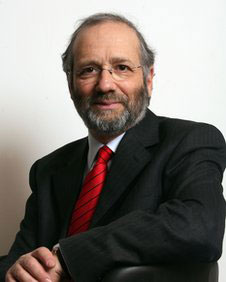Newsnight and Jimmy Savile
There has been a lot written about why I took the decision not to run a story into allegations of sex abuse by the former BBC presenter Jimmy Savile. It has been suggested I was ordered to do it by my bosses as part of a BBC cover-up. It has also been suggested that we deliberately withheld information from the police. Both these allegations are totally untrue and despite consistent strong denials keep getting repeated. I felt it would be useful to share more about what really happened.
The BBC has the highest editorial standards and with any story an editor has to weigh many things before putting something to air. BBC editors have a lot of power and responsibility and I have never, in the many years I have done this job, ever been told by one of my superiors not to do a story against my will. I would not still be working here if they had.
Why did I pursue this story about Jimmy Savile and why did I drop it?
I decided we should pursue the story because of the nature of the allegations and because the key witness told us the police had investigated the claims but the case had been dropped on the grounds he was too old. This made the public interest case from a Newsnight point of view potentially strong. If we could establish some sort of institutional failure we would have a much stronger story.
Some of the factors on the other side were: Newsnight is not normally interested in celebrity expose. Savile was unable to defend himself. What was the public interest served by reporting it given he is dead? The nature of the allegations and the level of proof required. The fact the incidents were 40 years ago.
We had no evidence that anyone from the Duncroft home could or should have known about the allegations. We had no evidence against the BBC. In her original statement our key witness said she was "perfectly certain the BBC had no idea whatsoever of the goings on". However, I felt if we could prove the police or the CPS had let the women down in some way we should go ahead.
We did establish the police had investigated the allegations in 2007. However, as the police would be obliged to investigate I wanted to check how they would respond to the allegation that it was not pursued because Jimmy Savile was too old. The CPS told us:
"The CPS reviewing lawyer advised the police that no further action should be taken due to lack of evidence." The additional guidance noted stated. "As this is the case, it would not be correct to say that his age and frailty was the reason for no further action being taken."
This statement specifically denied the allegation that the investigation was dropped because of his age. I felt it was significant the guidance was included and we had not established any institutional failure and I judged it weakened the story from a Newsnight perspective. I took the decision not to publish. There were some of my team who disagreed strongly with my judgement, and others who agreed equally strongly.
However, those who disagreed accepted my decision. There were no rows of any kind as has been reported.
Did we withhold evidence from the police? No. We are confident that all the women we spoke to had contacted the police independently already. We also had no new evidence against any other person that would have helped the police.
Did my bosses order me to do anything? No. I did discuss it with my bosses in News in the same way I do any contentious story we are working on. I was told in the strongest terms that I must be guided by editorial considerations only and that I must not let any wider considerations about the BBC affect my judgement.
The fact that the BBC has the capacity to do this may feel odd to other organisations but it is fundamental to the trust we share with our audience.
Peter Rippon is the editor of Newsnight




